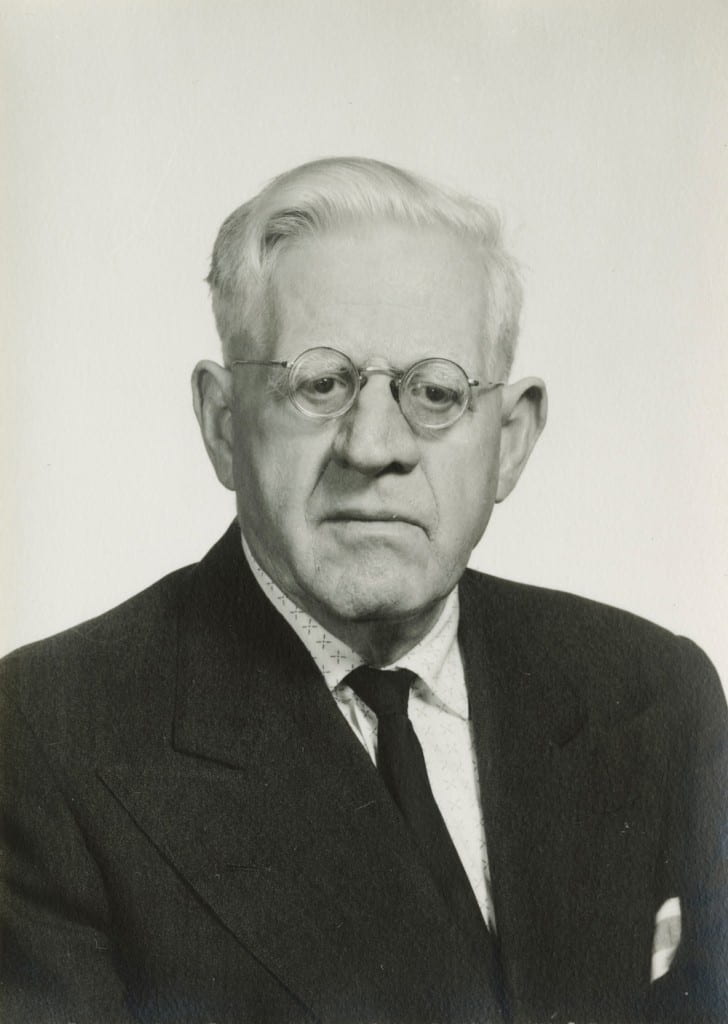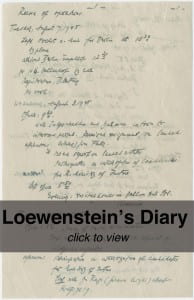From the Amherst College Archives and Special Collections
Amherst, MA
http://asteria.fivecolleges.edu/findaids/amherst/ma206.html
In 1941, a Guggenheim Fellowship took him to South America for several months of research on contemporary Latin American politics. His subsequent public lectures and writings on trends in Latin American and European political culture caught the attention of officials at the U.S. Departments of State and Justice seeking to curtail the spread of fascism. In 1942, Loewenstein took partial leave from Amherst College to become a Special Assistant to the U.S. Attorney General in Washington, D.C. Part of his responsibility was to oversee production of a series of reports and memoranda for the Emergency Advisory Committee for Political Defense of the American Republics on fascist political organization and activity in Latin America. While at the Department of Justice, Loewenstein was asked by the State Department to act as temporary legal advisor to the United Nations Relief and Rehabilitation Administration (UNRRA) (1943). He also spent several weeks teaching at the Harvard School for Overseas Administration in Cambridge, Massachusetts (1943-1944). Concurrent with these obligations, Loewenstein served on a committee of the American Law Institute organized to draft a “Statement on Essential Human Rights.” After the war, Loewenstein was asked by the Justice Department in to serve in the Legal Division of the United States Office of Military Government for Germany. From 1945-1946, he lent his expertise in German law and his familiarity with the German legal community to the effort to “de-Nazify” the administration of German justice. As of September, 1946, his primary activities were once again teaching and writing, but he continued work as an advisor on matters of constitutional and international law. From 1952-1954, he advised the leader of the German Social Democratic Party, Adolf Arndt, as the latter mounted a constitutional challenge to the signing of European Defense treaties by the Federal Republic of Germany. In 1961-1962, while teaching at Kyoto University on a Fulbright Fellowship, Loewenstein became an advisor to the Japanese Constitutional Reform Commission.
Loewenstein was a prolific writer and a tireless promoter of his works and ideas. During his first decade in the U.S., he gave numerous public talks to civic groups, both locally and nationally. Later in his career, he held more than fourteen guest professorships, including one at the University of Munich (where he was later reinstated as a full professor). Loewenstein authored fourteen books and numerous articles, pamphlets, book reviews, essays, and letters to the editor. He wrote and lectured on a wide range of topics, including comparative constitutional law, the history of government, political symbolism, and international affairs. Some of his work incorporated a sociological perspective on political power that manifested the influence of Max Weber, whose circle in Heidelberg Loewenstein had frequented in his student years. Frequent travel gained him contacts around the world, some of whom became regular correspondents. In addition to his professional memberships, he was a member of the Cosmos Club (Washington, D.C.). Opinionated and verbally adept in both German and English, Loewenstein often generated controversy and criticism through his publications and public lectures. He appears to have relished intellectual debate. Toward the end of his life, he found it increasingly difficult to interest American publishers in his work. He was held in particularly high esteem in German academic circles, however, throughout his lifetime and beyond. In 1972, he was awarded the German Order of Merit by the Federal Republic of Germany. He died on July 10, 1973, on a visit to Heidelberg.















